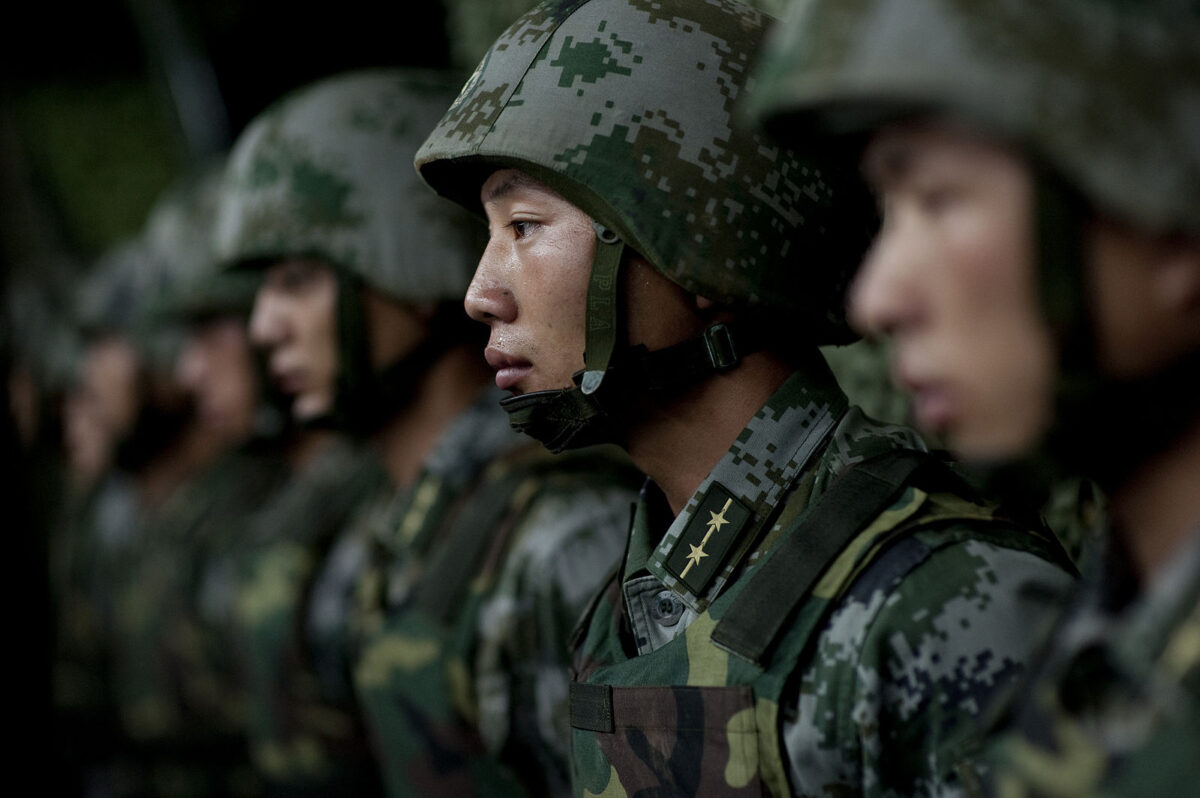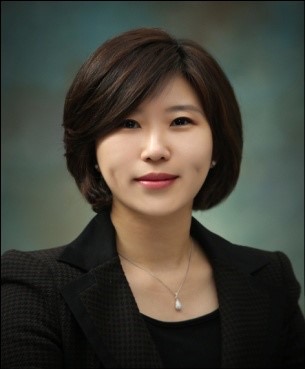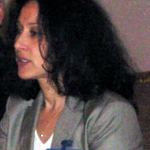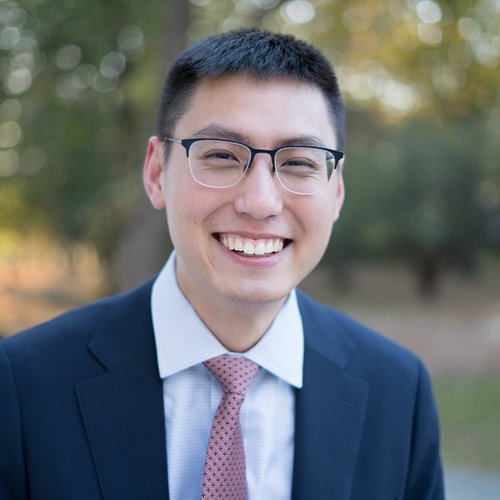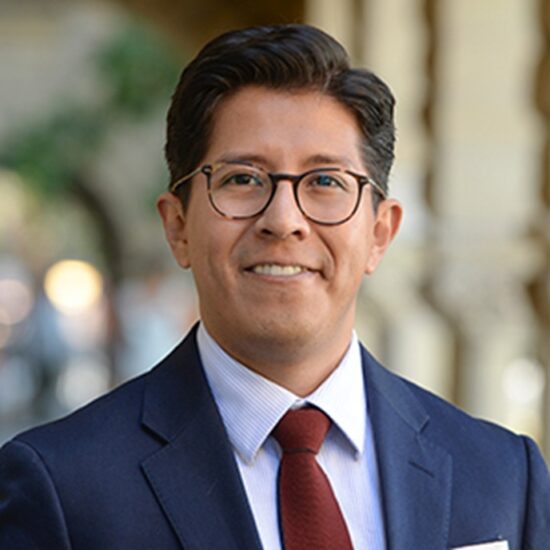Ellen Laipson is the Director of the International Security Program at the Schar School of Policy and Government at George Mason University. She joined GMU after a 25-year career in government and as President of the Stimson Center (2002-2015). Her last post in the US government was Vice Chair of the National Intelligence Council (1997-2002). She also served on the State Department’s Policy Planning Staff, the National Security Council staff, and at the Congressional Research Service. Currently she serves on a number of academic and non-government boards related to international security and diplomacy, including the ISD Board of Advisors. She joined the boards of the Center for Climate and Security in 2022 and the WWF’s Oceans Futures in 2023. She previously served on the International Council of the International Institute for Strategic Studies, the board of The Asia Foundation, and the advisory board of the Chicago Council on Global Affairs. She was a member of the CIA External Advisory Panel (2006-2009), President Obama’s Intelligence Advisory Board (2009-2013) and the Secretary of State’s Foreign Affairs Policy Board (2011-2014). She holds an M.A. from the School of Advanced International Studies at Johns Hopkins University and an A.B. from Cornell University.
Michael Hunzeker is an Associate Director of the Center for Security Policy Studies and is an Assistant Professor at George Mason University’s Schar School of Policy and Government. His studies on war termination, military adaptation and simulation design have appeared in Security Studies, the Journal of Strategic Studies, PS: Politics and Political Science, Parameters, Defense One and the Marine Corps Gazette. Michael holds an A.B. from the University of California, Berkeley as well as a Ph.D., M.P.A., and M.A. from Princeton University’s Woodrow Wilson School and spent 15 years in the Marine Corps and Marine Corps reserve. Click here for a list of publications.
Philip Martin is an Associate Director of the Center for Security Policy Studies and is an Assistant Professor of International Security at the Schar School of Policy and Government at George Mason University. He teaches courses on conflict and peacebuilding, comparative politics, and Africa. His research focuses on the legacies of civil wars for state formation and democracy, using archival, interview, and survey-based methods. His research has been published or is forthcoming in outlets such as Comparative Politics, African Affairs, Civil Wars, and Foreign Affairs. Dr. Martin is the author of Strong Commanders, Weak States (Cornell University Press, 2025), which examines how newly elected leaders ensure the obedience of their military forces in the transition from civil war to civilian governance, especially when many members had previously fought against the government, as well as the strategies policymakers employ to ensure civilian control and prevent the renewal of conflict. Dr. Martin has worked and conducted research in Côte d’Ivoire, Zimbabwe, South Africa, Botswana, and Tajikistan. He received a PhD in Political Science from the Massachusetts Institute of Technology.
Soyoung Kwon is the Director of CSPS Korea and an Assistant Professor of Government at George Mason University, Korea. She previously held research fellowships at the University of Cambridge’s East Asia Institute and Stanford University’s Asia Pacific Research Center, and she has served as a Korean specialist and advisor on EU-Korea relations at Belgium’s European Parliament. She has also taught at Kyung Hee University and Chonbuk National University. Her research focuses on comparative politics, international relations, North Korea, inter-Korean relations, and peace in Northeast Asia. She holds a B.A. from Ewha Womans University, a M.A. and Ph.D. from the University of Cambridge, and a M.A. from Stockholm University.
Sonia Ben Ouagrham-Gormley is an Associate Professor in the Schar School of Policy and Government at George Mason University, and she holds affiliations with GMU’s Biodefense Program, Center for Global Studies, and the Department of History and Art History’s Master of Arts in Interdisciplinary Studies (MAIS) program. She previously served as Senior Research Associate at the Monterey Institute’s James Martin Center for Nonproliferation Studies and taught at Johns Hopkins SAIS. Her research focuses on nuclear, chemical, and biological weapons proliferation; WMD program management; biosecurity; and bioterrorism. She has received grants from the Departments of Defense, State, and Energy, as well as major foundations. She holds a Ph.D. from the Ecoles des Hautes Etudes en Sciences Sociales, a graduate degree from the Ecoles des Hautes Etudes Internationales, and a M.A. and a dual B.A. from the University of Paris X-Nanterre. Click here for a list of publications.
Ahsan I. Butt is an Assistant Professor at the Schar School of Policy and Government at George Mason University. His main research interests lie in nationalism, international security, and South Asia. He is currently writing a book on separatist violence. His work has appeared in peer-reviewed journals such as Conflict, Security, and Development and International Organization, and has received generous support from the Belfer Center for Science and International Affairs at the Harvard Kennedy School, the Mellon Foundation, the Stanton Foundation, and the United States Institute of Peace. Click here for a list of publications.
Guadalupe Correa-Cabrera (Ph.D. in Political Science, The New School for Social Research) is an Associate Professor at the Schar School of Policy and Government, George Mason University. Her areas of expertise are Mexico-U.S. relations, organized crime, immigration, border security, and human trafficking. Her newest book is titled Los Zetas Inc.: Criminal Corporations, Energy, and Civil War in Mexico (University of Texas Press, 2017). She was recently the Principal Investigator of a research grant to study organized crime and trafficking in persons in Central America and along Mexico’s eastern migration routes, supported by the Department of State’s Office to Monitor and Combat Trafficking in Persons. She is now working on a new book project that analyzes all aspects of Mexican irregular immigration in the United States entitled Mexican “Illegal” Immigration in the U.S.: A Human Problem. Dr. Correa-Cabrera is currently the President of the Association for Borderlands Studies (ABS). She is also Global Fellow at the Woodrow Wilson International Center for Scholars and Non-resident Scholar at the Baker Institute’s Mexico Center (Rice University).
Robert L. Deitz is a professor in the Schar School of Policy and Government at George Mason University. He previously served as Senior Councilor to the Director of the Central Intelligence Agency (2006-2009) and as the General Counsel at the National Security Agency (1998-2006). He has also held positions as Acting General Counsel at the National Geospatial-Intelligence Agency and as Acting Deputy General Counsel, Intelligence, at the Department of Defense. Professor Deitz began his career as a law clerk to the Honorable Justices Douglas, Stewart, and White of the United States Supreme Court. He has also been in private practice and was Special Assistant to Deputy Secretary of State Warren Christopher and to Secretary of Health, Education, and Welfare Joseph Califano during the Carter Administration. Professor Deitz earned his J.D. from Harvard Law School, where he was the Supreme Court Note and Note Editor of the Harvard Law Review. He received an M.P.A from the Woodrow Wilson School of Public and International Affairs at Princeton University and a B.A. in English literature from Middlebury College, where he became a member of Phi Beta Kappa. Click here for a list of publications.
Colin Dueck is a Professor in the Schar School of Policy and Government at George Mason University. He studied politics at Princeton University and international relations at Oxford as a Rhodes Scholar. He has published three books on American foreign and national security policies: The Obama Doctrine: American Grand Strategy Today (Oxford 2015), Hard Line: The Republican Party and U.S. Foreign Policy since World War II (Princeton 2010), and Reluctant Crusaders: Power, Culture, and Change in American Grand Strategy (Princeton 2006). He has published articles on these same subjects in journals including International Security, Orbis, Security Studies, Review of International Studies, Political Science Quarterly, and World Policy Journal, as well as online at outlets including National Review, Foreign Affairs, The National Interest, and the New York Times. His research focuses on the relationship between party politics, presidential leadership, American conservatism, and U.S. foreign policy strategies. Dueck is the faculty adviser for the Alexander Hamilton Society at George Mason University, a non-resident fellow at the Foreign Policy Research Institute, and a member of the International Institute for Strategic Studies. Click here for a list of publications.

Arnie Dupuy is an adjunct faculty member of political science at the Schar School of Policy and Government and Virginia Tech. Dupuy is also a faculty member on the Naval Postgraduate School’s Energy Academic Group and chairs the Systems Analysis and Studies (SAS) 163, “Energy Security in the Era of Hybrid Warfare,” a NATO Science and Technology Organization program studying hybrid warfare’s impact on energy security and Alliance cohesion. His topics of interest include geopolitical aspects of energy security within the Trans-Atlantic Alliance, as well as the INDOPACOM area of responsibility. Recent publications include “Nord Stream 2: Implications and Outcomes for US-German Relations and the NATO Alliance” and “Energy Security in the Era of Hybrid Warfare.” Dupuy retired from the U.S. Army after 25 years of both active and reserve component service. He has been awarded the Bronze Star Medal, Global War on Terrorism Expeditionary Medal, and the Honorable Order of Saint Barbara. In 2016, Dupuy earned a Ph.D. in planning, governance, and globalization from Virginia Tech.
Meghan Garrity is an assistant professor of international security and law at the Schar School of Policy and Government at George Mason University. Her research is situated at the nexus of international peace and security, political violence, and forced migration. She is focused on understanding conflict processes by examining the causes of, and constraints on, government policies of group-based ethnic violence and exclusion. Her current book project, Mass Expulsion: The Politics of Forced Population Removal (under contract with Oxford University Press), explains why and how governments expel ethnic groups en masse. Garrity’s work has been published in the Journal of Peace Research, Security Studies, Political Science Quarterly, International Political Science Review, the British Journal of Sociology, the Conversation, and the Washington Post. She has over a decade of humanitarian and development experience throughout sub-Saharan Africa and the Middle East. She received her Ph.D. in political science from the University of Pennsylvania.
Jack A. Goldstone (PhD Harvard) is the Virginia E. and John T. Hazel, Jr. Professor of Public Policy at George Mason University, and a Public Policy Fellow at the Woodrow Wilson Center for Scholars. Previously, Dr. Goldstone was on the faculty of Northwestern University and the University of California, and has been a visiting scholar at Cambridge University and the California Institute of Technology. He has held positions in Russia and Hong Kong, and at the American Academy in Berlin. He is the author of Revolution and Rebellion in the Early Modern World, awarded the 1993 Distinguished Scholarly Research Award of the American Sociological Association; Why Europe? The Rise of the West in World History; and ten other books as well as over one hundred and fifty research articles on topics in politics, social movements, democratization, and long-term social change. His current research is on the global security and economic implications of long-term population change. He has appeared on NPR, CNN, Al-Jazeera, Fox News, and written for Foreign Policy, The Atlantic, the Washington Post, Al-Hayat and the International Herald Tribune. Click here for a list of publications.
John Gordon IV is a senior policy analyst at the RAND Corporation and an adjunct professor at the Schar School of Policy and Government. He joined RAND in 1997 after a 20-year U.S. Army career and has since participated in and led numerous studies for the Office of the Secretary of Defense and the Departments of the Army and Navy. Gordon has authored or coauthored several RAND studies on counterinsurgency and irregular warfare. He has led or participated in RAND research projects for the governments of the United Kingdom, Sweden, Italy, and Germany. Gordon is also an adjunct faculty member at Georgetown and George Mason universities, where he teaches graduate-level courses on counterinsurgency and military operations. He has written numerous articles on military subjects that have appeared in a variety of professional journals. Gordon received his Ph.D. in public policy from George Mason University. (full bio here) Click here for a list of publications.
Michael V. Hayden is a retired four-star general and former director of the Central Intelligence Agency and the National Security Agency. General Hayden also served as the country’s first principal deputy director of national intelligence and the highest-ranking military intelligence officer in the U.S. Hayden also served as commander of the Air Intelligence Agency and Director of the Joint Command and Control Warfare Center and held senior staff positions at the Pentagon, at U.S. European Command, the National Security Council, and the U.S. Embassy in Bulgaria. He was also the deputy chief of staff for the United Nations Command and U.S. Forces in South Korea. Hayden has been a frequent expert and commentator on major news outlets and in top publications on intelligence matters such as cyber security, government surveillance, and geopolitics. General Hayden is a principal at the Chertoff Group and a distinguished visiting professor at George Mason University’s Schar School of Policy and Government. His recent memoir, Playing to the Edge: American Intelligence in the Age of Terror, has been a New York Times bestseller. Click here for a list of publications.
Ambassador Richard Kauzlarich is the Co-Director for George Mason University’s Center for Energy Science and Policy and an Adjunct Professor teaching courses on the Geopolitics of Energy Security and Advanced Skills for Policy Professionals: Policy Communication for Executive Leadership. From June, 2011 to June 2013 he was Deputy Director of the Terrorism, Transnational Crime and Corruption Center (TraCCC) where he worked to establish an Executive Education Program. He served as National Intelligence Officer (NIO) for Europe on the National Intelligence Council (NIC) from September 2003 to April 2011. Among other issues Ambassador Kauzlarich was responsible for analyzing European energy security, the role of Turkey as an energy hub, and energy relations with the Caspian region. He lectures at the Foreign Service Institute on Caspian energy developments and European energy security and energy relations with Russia. Click here for a list of publications.
Gregory Koblentz is an Associate Professor and Director of the Biodefense Graduate Program in the Schar School of Policy and Government at George Mason University. He is also an Associate Faculty at the Center for Global Studies at George Mason and a member of the Scientist Working Group on Chemical and Biological Weapons at the Center for Arms Control and Non-Proliferation. During 2012-2013, he was a Stanton Nuclear Security Fellow at the Council on Foreign Relations where he conducted research on nuclear proliferation. Dr. Koblentz previously held fellowships and teaching positions at Georgetown University, Harvard University, and the Nuclear Non-Proliferation Project at the Carnegie Endowment for International Peace. Dr. Koblentz is the author of Living Weapons: Biological Warfare and International Security (Cornell University Press, 2009) and co-author of Tracking Nuclear Proliferation: A Guide in Maps and Charts (Carnegie Endowment for International Peace, 1998). His research and teaching focus on international security and weapons of mass destruction. He received a Ph.D. in political science from the Massachusetts Institute of Technology and an M.P.P. from the John F. Kennedy School of Government at Harvard University. Click here for a list of publications.
Kendrick Kuo is an assistant professor at George Mason University’s Schar School of Policy and Government. His work on military effectiveness, defense innovation, and technological change has appeared in International Security, Journal of Strategic Studies, Journal of Global Security Studies, Survival and Proceedings.
Kendrick has also been the coauthor of articles and book chapters on nationalism and ethnic politics. He holds a BA, MPhil, and PhD from George Washington University, as well as an MA from Johns Hopkins School of Advanced International Studies.

Ronald “Ron” Marks III is a 38-year veteran of the U.S. Intelligence Community. A former CIA case officer, he was a CIA Senate Liaison and Capitol Hill staffer who has served on a number of advisory groups at the Central Intelligence Agency and in The Office of the Director of National Intelligence. Marks was a Spring 2020 Dole Fellow at the University of Kansas, Robert J. Dole Institute of Politics. Ron will be conducting a series of seven seminars looking at the challenges and new developments effecting “Spying in the Cyber Age.” Appointed a 2021 Term Visiting Professor in the Schar School of Policy and Government at George Mason University, Marks designed a unique course devoted to the crucial intersection of national security policy and advancing technology. Marks has an MS in economics from the University of Oregon and a BS in business administration and economics from Lewis and Clark College.
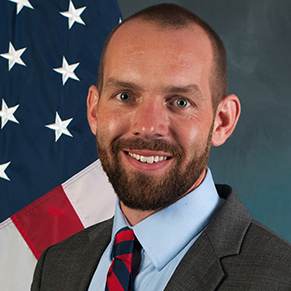
Brian Mazanec serves as an adjunct faculty member at the Schar School of Policy and Government and as the director of the Defense Capabilities and Management team in the U.S. Government Accountability Office (GAO), where he co-leads the strategic warfare and intelligence portfolio. Mazanec manages teams evaluating national security programs and activities related to emerging warfare issues; intelligence community management; counterintelligence; personnel vetting; intelligence, surveillance, and reconnaissance; and space policy and operations. His research interests focus on cyber conflict. Mazanec is the author of the book, The Evolution of Cyber War: International Norms for Emerging-Technology Weapons (University of Nebraska Press, 2015); co-author of Deterring Cyber Warfare: Bolstering Strategic Stability in Cyberspace (Palgrave Macmillan, 2014); and Understanding Cyber Warfare: Politics, Policy and Strategy (1st edition graduate textbook, Routledge, 2018), as well as co-editor of Information Warfare in the Age of Cyber Conflict (Routledge, 2020).

Andrew McCabe, a Distinguished Visiting Professor, has a lifetime of service within the Department of Justice, both in the field and as an executive. He brings that experience with him to the Schar School of Policy and Government. McCabe is an attorney who joined the Federal Bureau of Investigation as a special agent in 1996 and was on the bureau’s SWAT team for a while. In 2003 he became a supervisory special agent, and was promoted to various positions of increasing responsibility over a decade. Nearing the end of his tenure with the FBI, McCabe was promoted to Deputy Director in February of 2016, and served as Acting Director of the FBI after James Comey’s dismissal by President Trump. McCabe began his career in the FBI Field Office in New York. Once promoted to supervisory special agent, he oversaw the Eurasian Organized Crime Task Force. He has served in other high-profile roles within the bureau, such as the FBI Counterterrorism Division and the FBI National Security Branch. He was also a part of the investigation of the 2013 Boston Marathon bombing and secured the arrest of Ahmed Abu Khattala for his suspected involvement in the 2012 Benghazi attacks.
Eric McGlinchey is Associate Professor of Politics and Director of Graduate Studies for George Mason University’s Schar School of Policy and Government. He is the author of Chaos, Violence, Dynasty: Politics and Islam in Central Asia (University of Pittsburgh Press, 2011). His current research investigates international litigation of Central Asian assets and United States policy responses to crises in Eurasia. McGlinchey is the recipient of grants from the National Science Foundation, the U.S. Department of State, The U.S. Department of Education, and the Open Society Institute. McGlinchey received his Ph.D. from Princeton University in 2003. Click here for a list of publications.
J. Luis Rodriguez is an assistant professor of international security and law at George Mason University’s Schar School for Policy and Government. He is an affiliate at Stanford University’s Center for International Security and Cooperation. Rodriguez studies how Global South actors navigate inequalities in international orders. He uses a mix of qualitative methods to analyze how Global South actors attempt to level the playing field in global governance. His research centers on international security, focusing on the Global South’s approaches during nuclear, humanitarian, and emerging technologies governance negotiations.
His work has been published in International Affairs, the Cambridge Review of International Affairs, Third World Quarterly, the Bulletin of the Atomic Scientists, the Washington Post, War on the Rocks, and the North American Congress on Latin America, among other outlets.
Rodriguez holds a PhD and an MA in political science from Johns Hopkins University and a BA in international relations from El Colegio de Mexico. He was a junior advisor to the Mexican Vice-Minister for Latin American Affairs before joining the PhD program at Hopkins.
Ming Wan is Associate Dean; Professor; Director, Program Faculty in Government and International Affairs; and Director, Political Science Graduate Studies. His Ph.D. was from the Government Department, Harvard University. He has held postdoctoral fellowships at Harvard from the Program on U.S.-Japan Relations, the John M. Olin Institute for Strategic Studies and the Pacific Basin Research Center, and has been a visiting research scholar at Tsukuba University and a George Washington University-Woodrow Wilson International Center for Scholars Luce Fellow in Asian Policy Studies. He was a visiting professor at Keio University of Japan in 2010-2012. He has authored several works, includingThe Asian Infrastructure Investment Bank: The Construction of Power and the Struggle for the East Asian International Order (Palgrave Macmillan, 2016) and Understanding Japan-China Relations: Theories and Issues (World Scientific, 2016). He has also published in journals such as Asian Survey, Chinese Journal of International Politics, Human Rights Quarterly, Orbis, Pacific Affairs, Pacific Review, and International Studies Quarterly and in edited volumes. His current research interests include International Relations theory, Sino-Japanese relations, and the political economy of East Asia security. Click here for a list of publications.

Ketian Vivian Zhang is an Assistant Professor of International Security in the Schar School of Policy and Government. Ketian studies rising powers, coercion, economic statecraft, and maritime disputes in international relations and social movements in comparative politics, with a regional focus on China and East Asia. Ketian bridges the study of international relations and comparative politics and has a broader theoretical interest in linking international security and international political economy. Her research agenda emphasizes how globalized production and supply chains affect states’ foreign policy and domestic state-society relations, especially regarding coercion and protests. Ketian’s book project examines when, why, and how China uses coercion when faced with issues of national security, such as territorial disputes in the South and East China Seas, foreign arms sales to Taiwan, and foreign leaders’ reception of the Dalai Lama. Ketian received her Ph.D. in Political Science at the Massachusetts Institute of Technology in 2018, and is also a proud badger.


